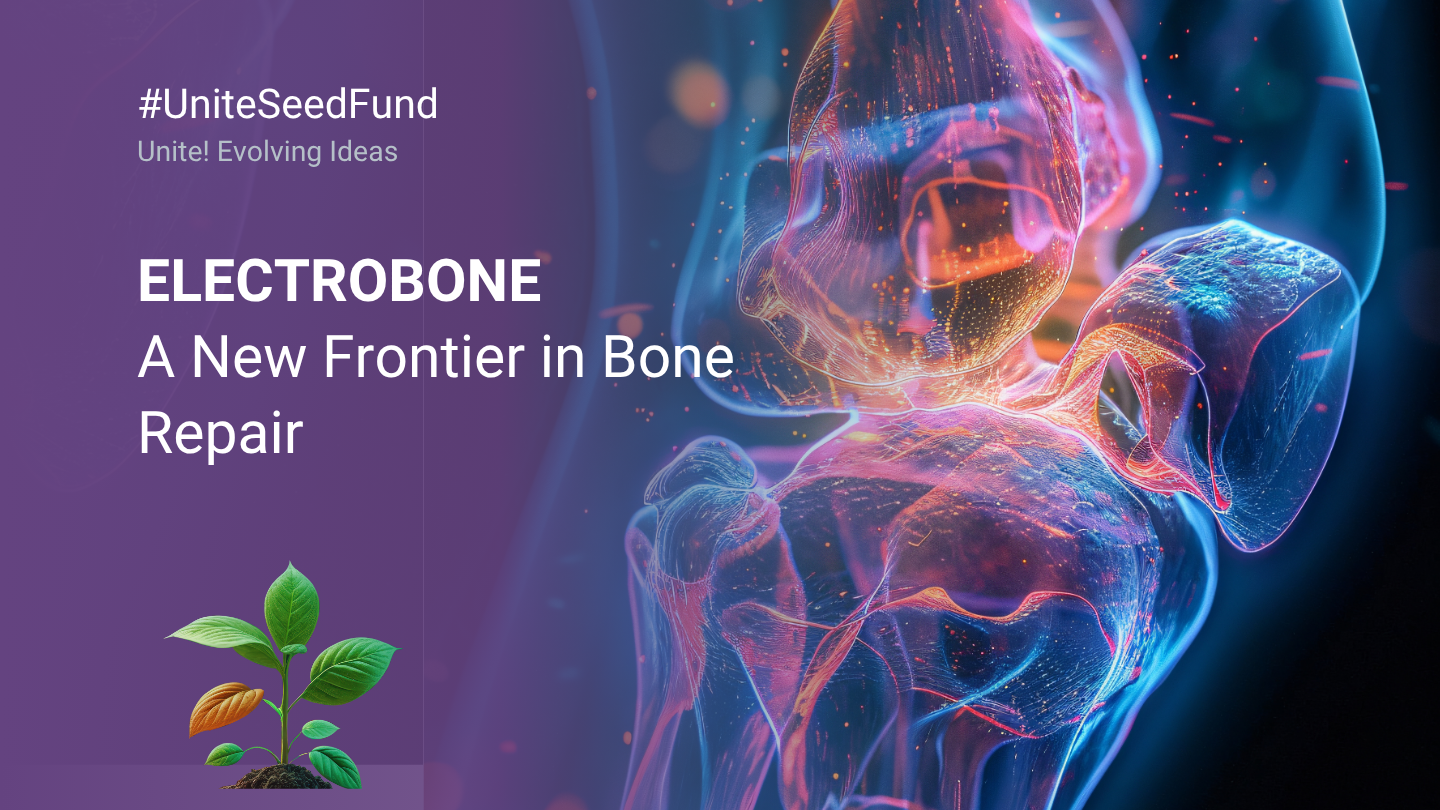
ELECTROBONE - A New Frontier in Bone Repair
Unite! researchers push the boundaries of bone regeneration with the ELECTROBONE Seed Fund project.
The ELECTROBONE project - Electroconductive scaffolds combined with biomimetic bioreactors for improved bone investigation and regeneration - has received funding under the Unite! Seed Fund Initiative for Research.
The incidence of non-union fractures and delayed bone healing is increasing in aging populations. Current standard treatments remain inadequate, while bone tissue engineering (BTE) could represent a promising strategy by integrating cells, biomaterials, and physical stimuli.
ELECTROBONE will, for the first time, investigate the potential synergistic effect of combining electroconductive scaffolds with non-invasive pulsed electromagnetic field (PEMF) stimulation, a clinically established approach for enhancing fracture healing. In this project, three-dimensional electroconductive scaffolds, seeded with human mesenchymal stem/stromal cells, will be cultured in a biomimetic bioreactor delivering PEMF stimulation.
This ground-breaking research, carried out by a multidisciplinary team from three Unite! universities, will enable the in vitro investigation of the combined effects of electroconductive materials and PEMF stimulation under bone-like conditions, pushing the boundaries of current state-of-the-art BTE strategies.
ELECTROBONE exploits the complementary expertise of its partners: automated biomimetic bioreactors and multiscale mechanical characterization (Diana Massai, Politecnico di Torino); stem cell-based in vitro models and additive manufacturing of scaffolds for bone regeneration (Frederico Castelo Ferreira, Universidade de Lisboa); and electroconductive polymeric materials for biomedical applications (Maria M. Pérez Madrigal, Universitat Politècnica de Catalunya).
“I am proud to lead this pioneering initiative, which unites complementary expertise across engineering, biology, and materials science. I am also very pleased and thankful to Unite! for this opportunity to collaborate with colleagues from Universidade de Lisboa and Universitat Politècnica de Catalunya, strengthening our partnership and advancing European biomedical research through this exciting joint effort”.
Researchers and institutions
Diana Massai, Associate Professor, Politecnico di Torino (Coordinator)
Frederico Castelo Ferreira, Associate Professor, Universidade de Lisboa – Instituto Superior Tecnico
Maria M. Pérez Madrigal, Associate Professor, Universitat Politècnica de Catalunya – Barcelona Tech
